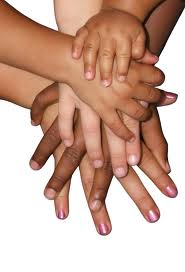Aimee Dawis, Jakarta Post
Last week in Jakarta, on the evening of Jan. 20, the Paguyuban Sosial Marga Tionghoa, or Indonesian-Chinese Social Association (PSMTI), inducted its new president, directors and leaders for 2013-2017. Dignitaries at the event at the Sun City ballroom included H. Sidarto Danusubroto, People’s Consultative Assembly (MPR) speaker; Budi Susilo Soepandji, National Resilience Institute (Lemhanas) governor; Defense Minister Purnomo Yusgiantoro and Jakarta Deputy Governor Basuki Tjahaja “Ahok” Purnama.
Held 11 days before Chinese New Year, the mood was festive and many women wore qipao (traditional Chinese dresses), whereas the men were dressed either in suits or batik. Aside from the upcoming Chinese New Year, the organization has much to celebrate. It is now a widely respected mass organization with membership numbering in the tens of thousands, spread over 280 branches across the country’s 30 provinces. The organization has also come a long way since its inception during the aftermath of the May 1998 tragedy in Jakarta, when many Chinese-Indonesians experienced various miseries as they became the targets of angry masses.
The Chinese were placed under an “assimilation” policy throughout the 33 years of the New Order era from 1966 to 1998. This policy banned the expression of Chinese language and culture in the public sphere. Chinese New Year was only allowed to be celebrated in the private domain and all Chinese-medium schools were closed.
While the restrictions may have been seen as a way to deflect unwanted attention from members of the Chinese community, many of those who became the victims of violence during the 1965 coup attempt blamed the Indonesian Communist Party (PKI), so the policy also reflected widespread government suspicion regarding the Chinese community’s role in the uprising.
The Chinese dutifully closed their schools and organizations, except for funeral homes and religious associations. Most chose to stay out of the political spotlight and concentrated on the one area in which they were allowed to be involved — the economy.
Therefore, despite the restrictions, which caused a whole generation of Chinese-Indonesians to experience a loss of Chinese language and culture, many of them flourished in the economic realm. Nonetheless, they again became scapegoats during the Asian monetary crisis of 1997 and the downfall of the Soeharto regime in May 1998.
Noted sociologist Mely G. Tan observed that the 1998 riots jolted the Chinese out of their compliance and precipitated the founding of mass organizations such as PSMTI and the Indonesian Chinese Association (INTI), which aimed to combat all sorts of discrimination. When the discriminatory policies against Chinese language and culture were lifted, these organizations shifted their focus to help fellow Indonesians in times of need — especially those affected by natural disasters.
Other organizations based on common dialect groups, such as the Fu Qing and Hakka associations, have also contributed huge amounts of funding to the building of schools for non-Chinese children. The PSMTI and INTI, for example, have pooled resources to provide disaster aid to victims of earthquakes, volcanic eruptions and the recent flooding.
Contrary to the prevailing belief that Chinese-Indonesian organizations only attract the older generations, the youth wings of these organizations often initiate the efforts to distribute help and basic necessities to the needy. At the time of writing, PSMTI volunteers were channeling resources to help flood victims all over Indonesia, especially in locations with large numbers of disadvantaged people such as Tangerang, Banten.
These examples are necessary to debunk the stereotype that the Chinese are exclusive. At the installation of the new PSMTI leaders, Ahok reminded members to continue contributing to their country. Known as a straight-shooter who does not mince words, Ahok also stated that Chinese-Indonesians who hope to win a place as legislators in the upcoming elections must not count on winning based on the support of their ethnic community, nor on policies that benefit the Chinese.
They should, instead, focus on putting together a political agenda that will benefit all Indonesians. Coming from the first ethnic Chinese person to become a deputy governor of Jakarta, this is a wise piece of advice.
As the nation celebrates Chinese New Year on Jan. 31, we must be mindful of our country’s multicultural, multifaceted sociological make-up, framed by our understanding and appreciation of our historical past, as well as what our founding fathers have long recognized as Bhinneka Tunggal Ika (Unity in Diversity).
The writer lectures on Cultural Studies and Communications at the University of Indonesia. She also writes on and researches various facets of the ethnic Chinese population in Indonesia. Her current research topic focuses on Chinese-Indonesians’ political activism.
Link for this article: http://www.thejakartapost.com/news/2014/01/29/insight-chinese-new-year-from-exclusion-celebration-diversity.html








